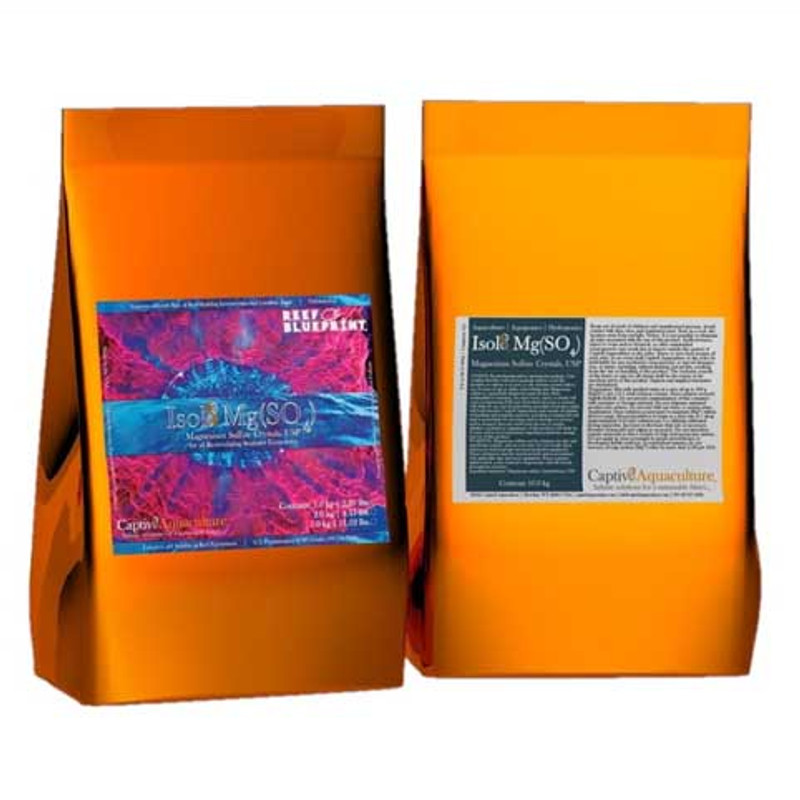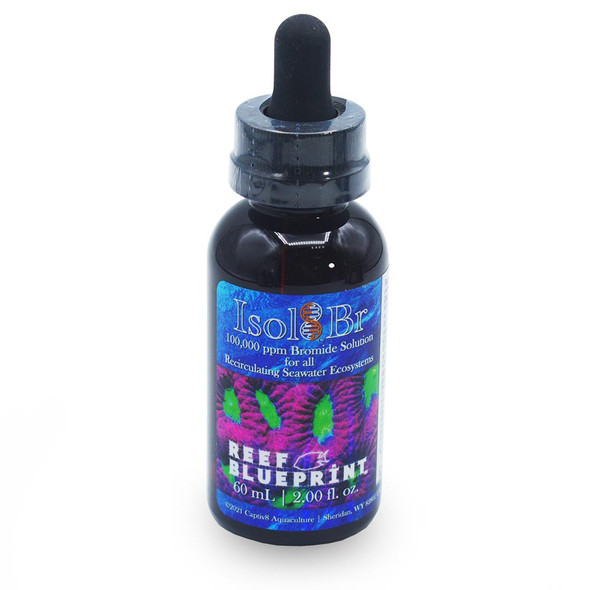Description
Characteristics
-
Active Components: Magnesium sulfate, heptahydrate, USP (≥99.75% purity)
Basic Application
-
See 'Application', below.
Application
Keep out of reach of children and unauthorized persons. Avoid contact with skin, eyes, and mucous membranes. Store in a cool, dry location away from sunlight.
The following discussion and recommendations are made expressly for recirculating systems. Laboratory application may proceed as required by study objectives. Review Disclaimer at bottom of page prior to using this or other Captiv8 Aquaculture product(s).
The rate of ion depletion due to cohort uptake is driven by various chemical and physical factors which are unique to each independently-operating recirculating system, and which are constantly changing as cohort biomass increases and decreases.
Monitoring (daily) the system's concentrations of element(s) provided by this formulation and referencing apparent changes in cohort biomass will enable User to adjust dosing of this formula to suit system requirements, improving overall effectiveness and resulting in less wasted material.
Isol8 Mg(SO4) must be diluted into purified water in order to create a homogenous solution; do not add dry product directly to an established recirculating ecosystem. Isol8 Mg(SO4) is readily soluble, however, so solution preparation is simple and generally takes only a few minutes to complete, given adequate circulation of the solution.
Recommended is diluting 500 g of Isol8 Mg(SO4) into adequate purified water (with a purity of at least 98%) to form 1 L of solution. This solution will contain ~49,180 ppm Mg2+. Apply this solution to the system with an automated dosing system. Dosing frequency is directly proportional to stability of ionic concentrations and, resultantly, continuous cohort biomass growth. A 1 - 10 s drip interval provides adequate ionic stability, and is recommended.
If no automated dosing system is available, then apply solution manually each day. Dosing frequency is directly proportional to stability of ionic concentrations and, resultantly, continuous cohort biomass growth. Dosage volume per 24 h is divided by the dosing frequency*.
It is not recommended that this formulation be dosed fewer than four times weekly.
Note for application in high-magnesium demand recirculating seawater ecosystems: Be advised that magnesium sulfate may not be suitable as a sole source of magnesium supplementation in recirculating seawater ecosystems with relatively high magnesium demand, due to the mass of sulfate that is contributed to the system. The sulfate ion behaves conservatively in seawater, meaning that it will accumulate with continued dosage of magnesium sulfate; the long term impact of elevated sulfate content is the topic of some conjecture, however we feel that maintaining as close an ionic profile to natural seawater within recirculating seawater ecosystems can only be beneficial. Therefore, it is recommended to use a combination of magnesium sources, namely chloride- and sulfate-salts of magnesium, to maintain magnesium in systems in which the [Mg2+] value decreases by more than 100 ppm per week (as a rough guideline). Second, magnesium sulfate has a pH lower than that of natural seawater. The use of magnesium sulfate as the primary magnesium source in recirculating seawater systems may result in depressed system pH, requiring the application of greater amounts of buffering compounds (pure carbonate salts are not suitable for this purpose) than would be required when using a magnesium sulfate in conjunction with magnesium chloride.
Reference Standards: 1 mL Isol8 Mg diluted in 26.4 gal. (100 L) water yields 1 ppm increase of [Mg].
To calculate required solution** volume for known parameter differential:
-
Multiply net water volume (L) by actual [Mg] (ppm).
-
Multiply net water volume (L) by desired [Mg] (ppm).
-
Subtract product of Step 1 from product of Step 2.
-
Divide difference of Step 3 by 49.180. Answer is mL sol’n required to achieve desired [Mg] in situ.
Recommended: Do not increase parameter concentration by more than 5% per 24h period in systems with existing cohorts. Aside from emergencies (e.g. excessive nutrient content in an active system, greatly depressed or excessive salinity, etc.), gradual changes in water composition are generally tolerated better by aquatic organisms than are rapid changes.
*Example: If dosage volume per 24 h = 10 mL and dosing frequency = 4, then dose 2.5 mL per event.
**Using the 500 g per 1 L total sol'n volume recommendation.
Disclaimer
Notice: It is not possible to eliminate all risks associated with the use, handling, or storage of this product. Ineffectiveness, injury to crops and/or livestock, or other unintended consequences may result due to factors outside the control of Captiv8 Aquaculture or the seller. Buyer or user shall assume all such risks. For details, go to Terms and Conditions. Consult SDS before use.
Disclaimer: Captiv8 Aquaculture warrants that this product conforms to the description, and is reasonably fit for the purposes described, on its label. In no event shall Captiv8 Aquaculture or the seller be held liable for any incidental, consequential, or special damages, loss, or injury, including, without limiting, lost profits, resulting from the use or handling of this product. The exclusive remedy of the buyer or user for all claims shall be the return of the purchase price of this product. Express and implied warranties are disclaimed. Captiv8 Aquaculture does not authorize any agent or representative to make any other warranty, guarantee, or representation concerning this product.







